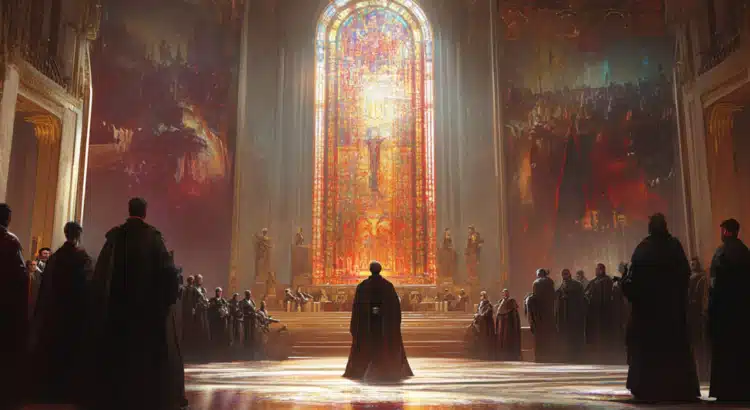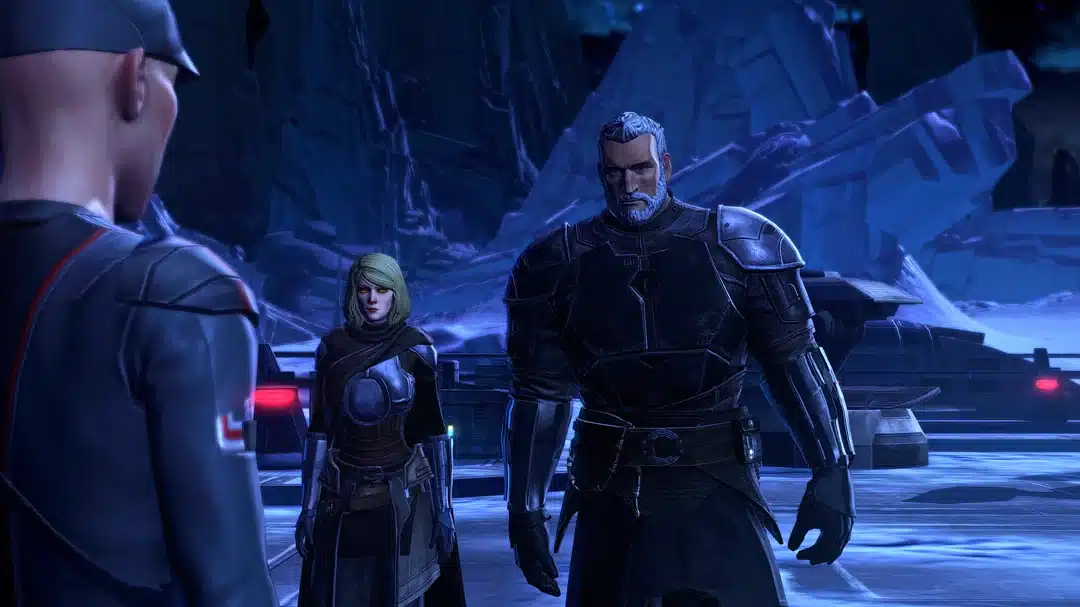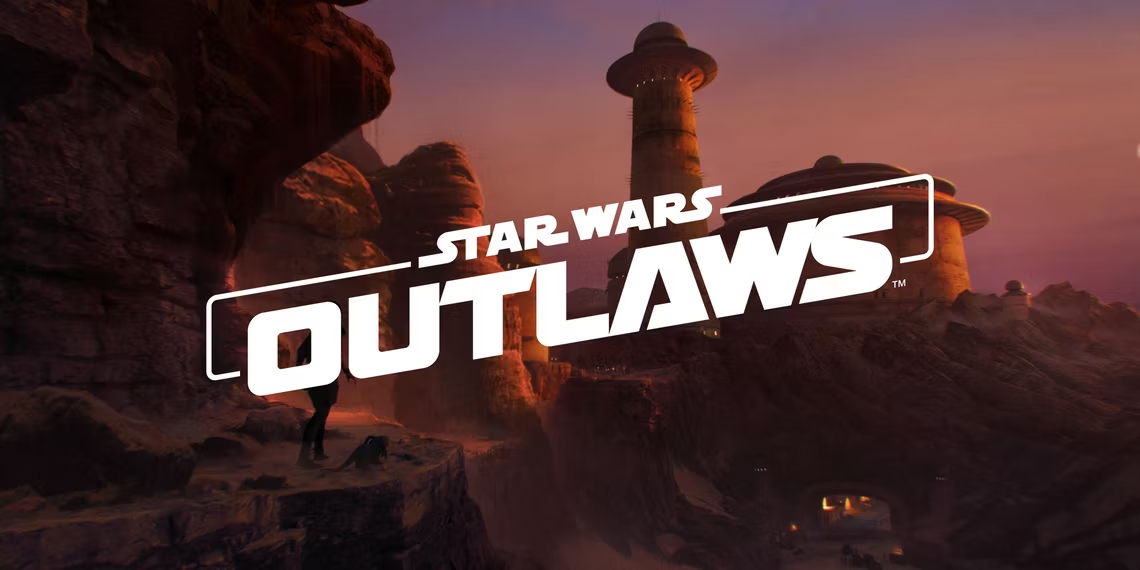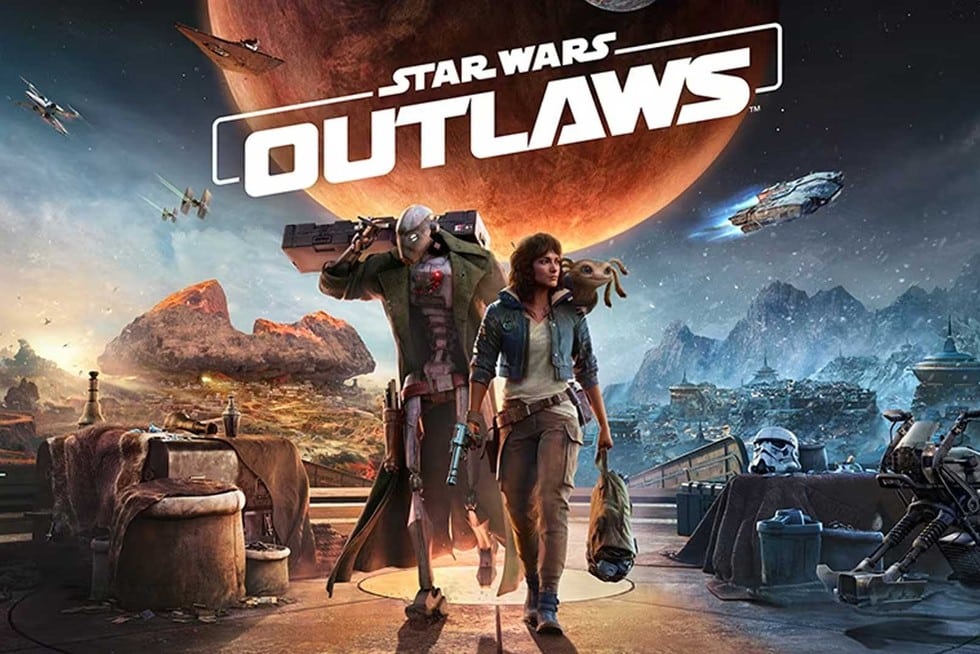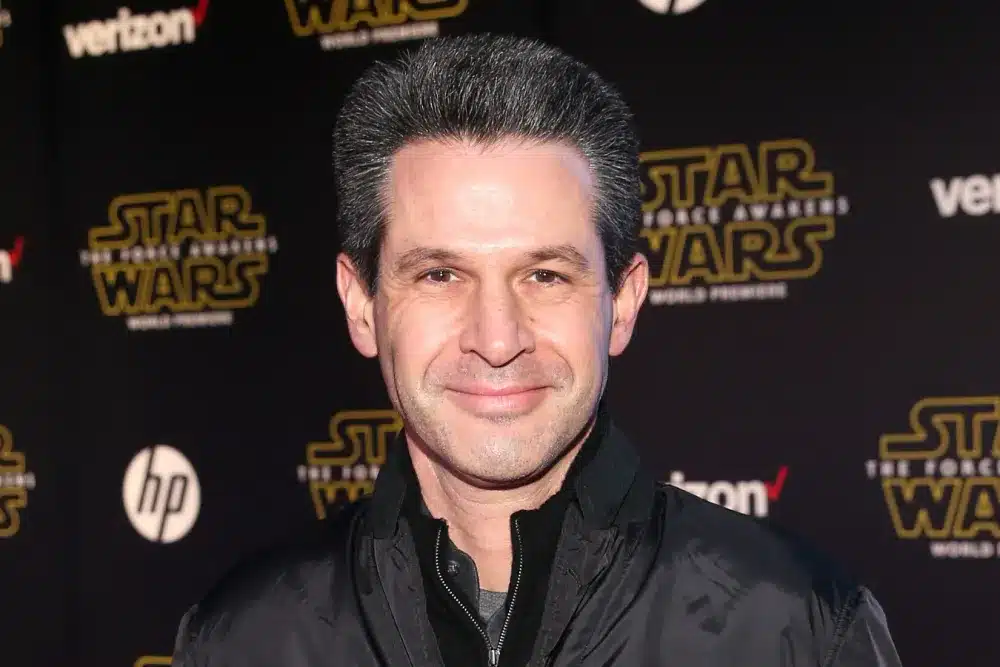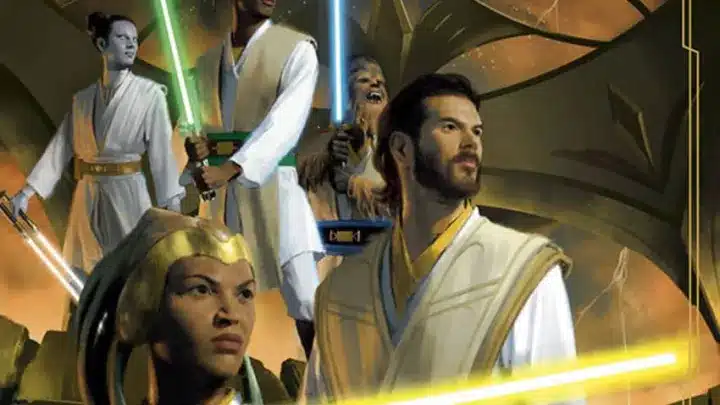Ah, the Jedi Order—keepers of the peace, masters of the Force, wielders of the galaxy’s most elegant glow sticks. If there’s one thing Star Wars fans can agree on, it’s that the Jedi had a pretty raw deal. Sworn to protect the galaxy from chaos, they often found themselves dragged into political squabbles, questionable council meetings, and intergalactic wars. Were they truly the noble peacekeepers they claimed to be, or did they become unwilling pawns in a political chess game played by powerful forces beyond their control? Let’s dive in and unravel the complicated web of the Jedi Order’s involvement in galactic politics.
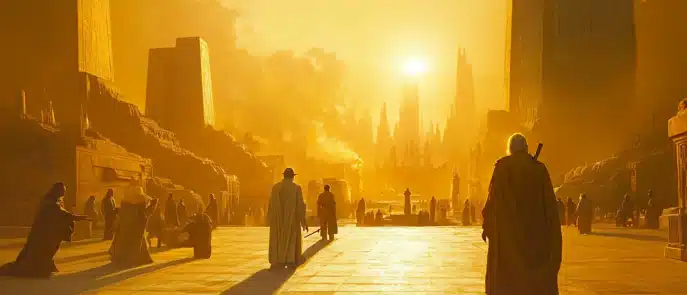
The Jedi Order: A Brief History and Mission
The Jedi Order was established thousands of years before the events of the Star Wars films, dedicated to maintaining peace, justice, and balance in the galaxy. Guided by the mystical energy field known as the Force, the Jedi trained in its use, honed their skills with lightsabers, and followed a strict code of ethics. Think of them as space monks with laser swords, minus the luxury of a quiet monastery (unless you count the occasional meditation session).
The Jedi’s primary mission was to be impartial peacekeepers, protectors of the innocent, and enforcers of justice. At their core, they sought to balance the Force, oppose the Sith (their dark side-using counterparts), and keep the galaxy from descending into chaos. Neutrality and detachment from worldly affairs were key tenets of their philosophy—something easier said than done in a galaxy as politically messy as the one they inhabited.
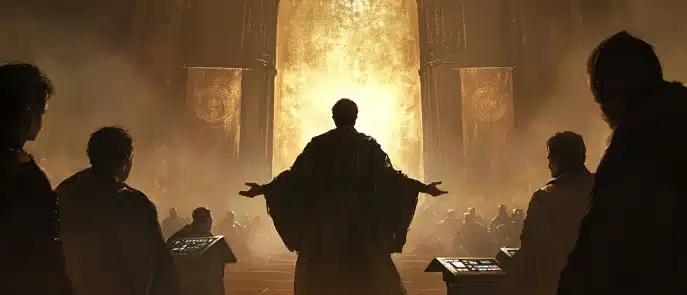
The Jedi as “Neutral” Peacekeepers: Noble Ideals Meet Galactic Realities
The Jedi Order’s commitment to neutrality was commendable… on paper. In reality, it was about as practical as trying to negotiate with a rancor. While the Jedi aspired to act as impartial mediators, they were often dragged into conflicts where neutrality wasn’t just difficult—it was impossible.
For example, the Jedi often acted as mediators in disputes between planets and factions, with their lightsabers as a last resort. Yet, even their attempts at diplomacy frequently turned political. Consider the events in Star Wars: Episode I – The Phantom Menace, when Qui-Gon Jinn and Obi-Wan Kenobi were dispatched to negotiate with the Trade Federation during the Naboo crisis. What started as a peaceful mission quickly turned into a battle to save an entire planet. Neutrality? More like “hope-you-brought-your-lightsaber-ity.”
Throughout the galaxy, the Jedi’s involvement in peacekeeping missions often led to unintended consequences, forcing them to walk a fine line between mediation and intervention. In novels and comics, Jedi missions are filled with moral dilemmas that expose the difficulty of staying truly neutral. When planets called for help or when oppressive regimes threatened innocents, the Jedi had to make tough decisions—decisions that sometimes compromised their ideals and dragged them into political squabbles.
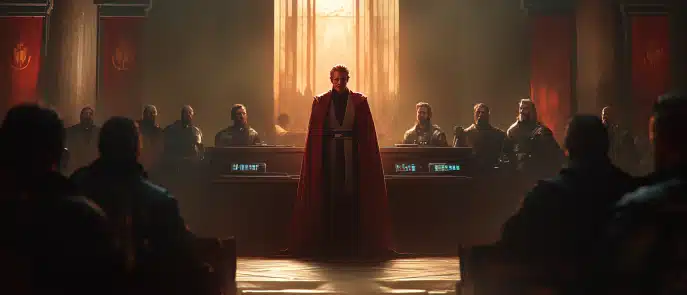
When Peacekeeping Becomes Politics: The Jedi and the Galactic Senate
The Jedi’s relationship with the Galactic Senate was complicated, to put it mildly. As the Republic’s guardians, they worked closely with the Senate, serving as an independent yet trusted arm of justice. But in doing so, they became entangled in the political machinery of the Republic—a place where corruption, bureaucracy, and backroom deals were as common as droids.
Their close association with the Senate meant that the Jedi were often seen as enforcers of Senate policies. While this strengthened their legitimacy in the eyes of some, it also made them targets for political manipulation. The Jedi Council tried to maintain a degree of independence, but working under the Republic’s authority inherently tied them to political decisions.
One of the clearest examples of this entanglement is the Jedi’s role in policing separatist movements. When star systems expressed dissatisfaction with the Republic, the Jedi were often dispatched to bring them back into the fold. From the perspective of many worlds, the Jedi were less “peacekeepers” and more “Republic enforcers.” This blurred the line between their role as neutral mediators and political actors, damaging their reputation and making them vulnerable to criticism.
The Clone Wars: Jedi as Generals – Heroes or Pawns?
The Clone Wars marked a significant turning point for the Jedi Order. Faced with the threat of the Separatist Alliance and an escalating galaxy-wide conflict, the Jedi traded their robes for armor and their meditation mats for military command posts. Suddenly, the guardians of peace found themselves leading battalions of clone troopers, planning military strategies, and fighting a war on behalf of the Republic.
Becoming generals in a war fundamentally changed the Jedi. No longer impartial peacekeepers, they were now military leaders—and targets. The transformation didn’t happen overnight, but the consequences were devastating. The war corrupted their ideals, stretched their resources thin, and forced them to make morally questionable decisions. For every battle won, the Jedi’s reputation suffered as they became increasingly associated with violence and war.
Palpatine, the mastermind behind the Clone Wars, played the Jedi Order like a fiddle. He used their involvement in the war to weaken their credibility, sow distrust among the public, and blur the line between hero and pawn. The war was a trap—a brilliant and deadly one that ultimately led to the Jedi’s downfall. By the time Order 66 was executed, the Jedi were already painted as warmongers and political tools, making it easier for Palpatine to portray them as traitors to the Republic.
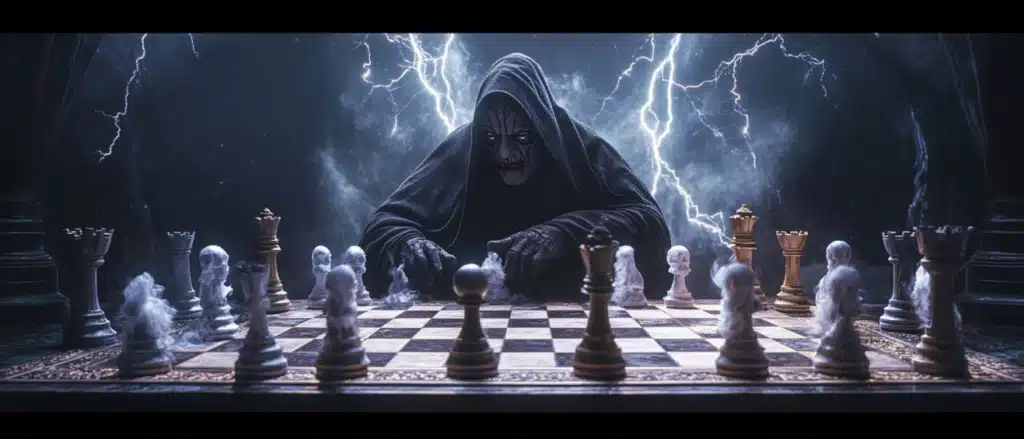
Palpatine’s Grand Plan: Jedi as Pawns in a Sith Chess Game
If there’s one thing Palpatine excelled at (aside from cackling dramatically), it was manipulating others to serve his ends. The Jedi Order, despite their wisdom and power, were no exception. Palpatine’s rise to power was built on a series of carefully orchestrated crises that forced the Jedi deeper into the political and military arena. Every step they took to protect the Republic played into his hands.
As Darth Sidious, Palpatine orchestrated the Clone Wars from both sides—controlling the Republic as Chancellor and the Separatists through Count Dooku. By creating a conflict that required Jedi intervention, he ensured that they would be seen as political actors, not neutral guardians. Palpatine used propaganda to paint the Jedi as a threat, setting the stage for their betrayal.
When Order 66 was executed, it wasn’t just the clones who turned on the Jedi—it was the culmination of years of political maneuvering. The Jedi had become pawns in Palpatine’s grand plan, their downfall engineered by their very involvement in politics and war. It was a tragic end for an order that once prided itself on staying above such matters.
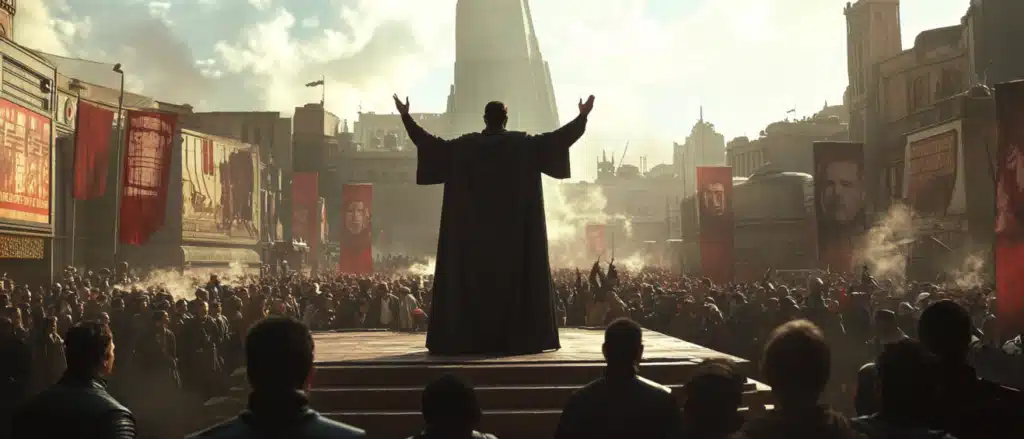
The Jedi and Their Relationship with the People: Guardians or Oppressors?
For the common citizens of the galaxy, the Jedi were a mixed bag. To some, they were legendary protectors—heroes who wielded the Force to defend the helpless. To others, they were aloof enforcers of the Senate’s will, detached from the struggles of everyday life.
During the Clone Wars, public perception of the Jedi shifted. Many saw them as warriors, not peacekeepers, and their close ties to the Republic’s military efforts made them appear complicit in its corruption. In Star Wars Rebels and various novels, we see how some planets view the Jedi with suspicion, even fear. The Empire capitalized on this mistrust, using propaganda to paint the Jedi as dangerous zealots.
The Jedi’s interactions with local leaders, resistance movements, and ordinary citizens reveal a complex relationship. While they sought to uphold peace, their association with politics often put them at odds with those they intended to protect. Their detachment from personal attachments, a key tenet of their code, also made them appear distant and unapproachable—further complicating their relationship with the people they served.
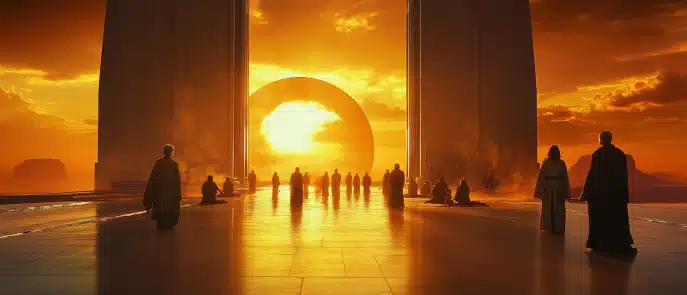
A Look Beyond the Films: Jedi Politics in Books, Comics, and Games
The expanded universe offers countless stories that delve into the Jedi Order’s political role. In novels like Master & Apprentice by Claudia Gray, we see how Jedi struggle with their duties as peacekeepers and their role in political affairs. The comics often explore individual Jedi facing moral dilemmas tied to political conflicts, while video games like Star Wars: Knights of the Old Republic allow players to make decisions that shape the galaxy’s political landscape.
In these stories, the Jedi grapple with the ethical implications of their involvement in politics. Should they intervene in conflicts that aren’t theirs to fight? Should they obey the will of the Senate or follow their own moral compass? These tales highlight the complexity of their role and the challenges they face in staying true to their mission.
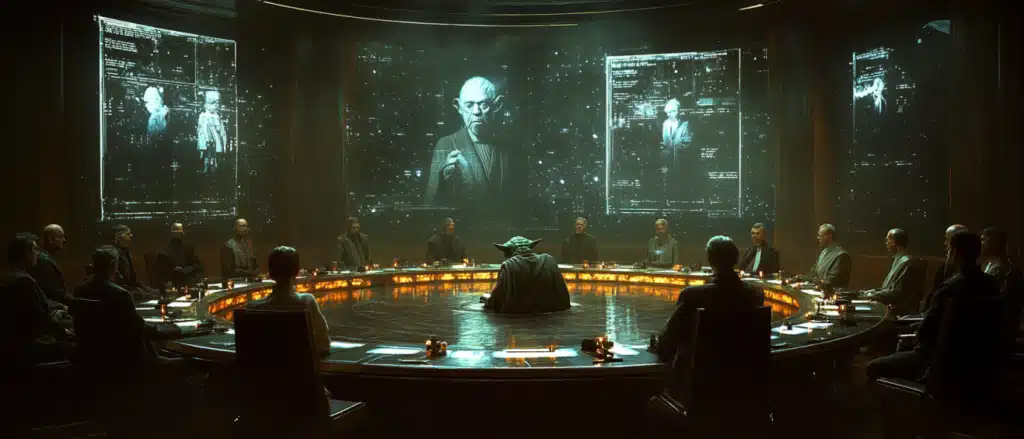
The Ethical Quandary: Should Jedi Have Been Involved in Politics?
Was the Jedi Order’s involvement in politics a necessary evil or a fatal flaw? On one hand, their intervention in galactic affairs often protected the innocent and preserved peace. On the other hand, their entanglement with the Republic’s political system made them vulnerable to manipulation and corruption.
Arguments can be made for both sides. As peacekeepers, the Jedi had a duty to intervene when injustice threatened the galaxy. Yet, their attachment to the Republic compromised their neutrality and ultimately led to their downfall. In many ways, the Jedi’s political role reflects real-world challenges faced by organizations that seek to balance idealism with practical realities.
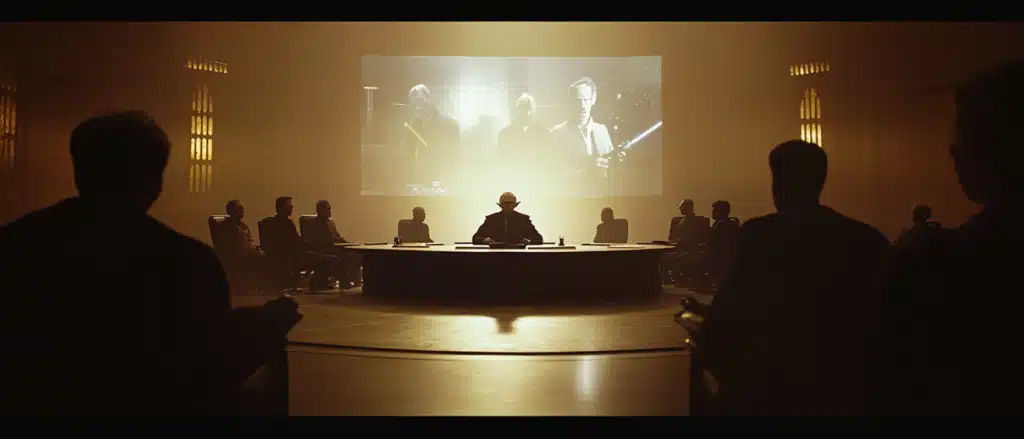
Conclusion: Peacekeepers, Pawns, or Something More?
The Jedi Order’s involvement in galactic politics was both a strength and a weakness. As guardians of peace, they sought to uphold justice and protect the innocent. But their entanglement with political affairs made them pawns in the machinations of those who sought power. Ultimately, the Jedi’s fate was shaped not just by their own choices, but by the galaxy’s shifting political landscape.
Whether seen as heroes, pawns, or something in between, the Jedi Order’s story is a testament to the complexities of leadership, power, and the struggle to stay true to one’s ideals. In a galaxy filled with political intrigue, the battle for peace is never simple—and the line between guardian and pawn is often razor-thin. May the Force guide us all, but maybe keep a wary eye on those Senate meetings. They’re trouble.
Stay up-to-date with the latest news, updates, and exclusive content! Click here to follow us on Google News and never miss a story from the galaxy and beyond.


